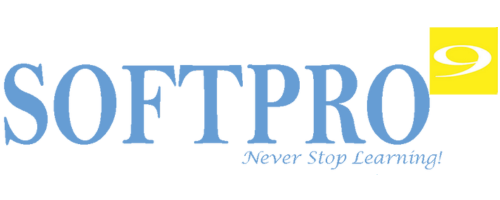
How to Start a Career in Business Analytics Courses with No Experience? 10 Key Points to Note for Beginners and Freshers!
#1 Myinstitutes.com is one of the Best Educational Portal and Training Institutes in MYSORE, MANGALORE, and BANGALORE.
Business Analytics is one of the most sought-after career paths in today’s data-driven world. Companies rely on business analysts to make informed decisions, optimize processes, and create strategies that drive growth. But what if you’re starting from scratch with no prior experience? Don’t worry—many successful analysts began their journey just like you! With the right steps and a clear roadmap, you can build a strong foundation in business analytics.
Here’s a detailed guide that breaks down 10 key points to help you navigate this exciting field as a beginner or fresher.
1. Grasp the Basics of Business Analytics
Before committing to a course or role, it’s essential to understand what business analytics entails. A business analyst’s primary responsibility is to use data to address business challenges, identify opportunities, and make data-driven recommendations. This role combines technical skills like data analysis with soft skills like problem-solving and communication.
Take the time to research the fundamentals of analytics, such as:
- The types of data used in businesses.
- Common analytics processes and methodologies.
- Key outcomes businesses expect from analytics.
This understanding will give you clarity and direction as you explore further.
2. Learn Fundamental Data Concepts
Every successful business analyst starts with a solid grasp of basic data concepts. Understanding data types (structured and unstructured), statistical techniques, and data visualization methods is critical.
For beginners, here are some topics to focus on:
- Descriptive, predictive, and prescriptive analytics.
- Basic statistical measures like mean, median, and variance.
- How to create and interpret charts, graphs, and dashboards.
There are countless free resources, including YouTube tutorials, blogs, and beginner courses on platforms like Coursera and Khan Academy.
3. Get Hands-On with Analytics Tools
Practical experience with analytics tools is non-negotiable. Most business analytics jobs require proficiency in tools like:
- Microsoft Excel: Start with basic functions like pivot tables and gradually learn advanced features like Power Query and VBA.
- SQL: Learn how to extract, manipulate, and analyze data stored in databases.
- Tableau and Power BI: Master data visualization tools to present insights in a user-friendly way.
- Python or R: For advanced analytics, scripting languages help perform statistical analyses and automate tasks.
Begin by exploring free trials, online tutorials, or certifications for these tools.
4. Choose the Right Business Analytics Course
Enrolling in a structured course is one of the best ways to gain industry-relevant knowledge. Opt for beginner-friendly courses that provide a mix of theory and practical applications. Look for programs offering:
- Real-world projects or case studies.
- Mentorship from industry experts.
- Certifications that are recognized in the job market.
Platforms like Udemy, Simplilearn, and Google Analytics Academy offer excellent beginner options.
5. Build a Portfolio of Real-World Projects
One of the most effective ways to showcase your skills is through a portfolio of projects. Even if you’re new, you can use publicly available datasets to create impactful projects. Websites like Kaggle, UCI Machine Learning Repository, and data.gov offer free datasets for practice.
Here are some project ideas:
- Analyze sales trends for an online retailer.
- Create a dashboard to visualize customer demographics.
- Predict employee attrition using a machine-learning model.
These projects demonstrate your analytical abilities to potential employers.
6. Sharpen Your Communication Skills
As a Business Analyst, you’ll often act as a bridge between technical teams and business stakeholders. This means you need to explain complex data insights in a way that’s easy to understand.
Practice creating reports, crafting presentations, and storytelling with data. Use tools like Google Slides or Canva to design professional presentations. The ability to communicate clearly and persuasively will set you apart in interviews and the workplace.
7. Network and Connect with Industry Professionals
Building connections in the analytics community can open doors to mentorship and job opportunities. Start by:
- Joining LinkedIn groups for business analysts and data enthusiasts.
- Attending industry webinars, workshops, and local meetups.
- Participating in forums like Reddit’s r/BusinessIntelligence or Quora discussions about analytics careers.
Networking can also help you stay updated on industry trends and get referrals for roles.
8. Understand Industry-Specific Analytics
Different industries apply business analytics in unique ways. For example:
- In retail, analytics can help optimize inventory and predict consumer behavior.
- In healthcare, it’s used to improve patient outcomes and reduce operational costs.
- In finance, it aids in fraud detection and risk assessment.
Having domain knowledge makes your skills more valuable. Start by exploring case studies and trends in your desired industry.
9. Look for Internships or Freelance Work
Experience is crucial when transitioning into any career. While full-time roles might seem out of reach initially, internships and freelance opportunities are excellent ways to gain hands-on experience.
Tips to find these opportunities:
- Search for remote internships on platforms like Internshala or LinkedIn.
- Offer your services to local businesses for free or at a nominal fee to gain experience.
- Freelance platforms like Upwork and Fiverr often have projects for budding analysts.
Every project you complete adds credibility to your resume.
10. Stay Committed to Lifelong Learning
Business Analytics is a fast-evolving field with new tools, technologies, and methodologies emerging regularly. To stay competitive, you need to adopt a mindset of continuous learning.
Here’s how you can stay updated:
- Follow blogs like Analytics Vidhya or KDnuggets.
- Attend workshops and conferences to learn about the latest trends.
- Take advanced courses in machine learning or artificial intelligence once you’ve mastered the basics.
Lifelong learning ensures that your skills remain relevant and valuable in the job market.
Conclusion
Starting a career in Business Analytics with no experience may seem intimidating, but it’s entirely possible with the right approach. Focus on building your knowledge base, gaining practical skills, and connecting with industry professionals. By following these 10 steps, you can confidently launch your career in business analytics and position yourself for long-term success.
So, take the first step today—your dream career in analytics awaits!



